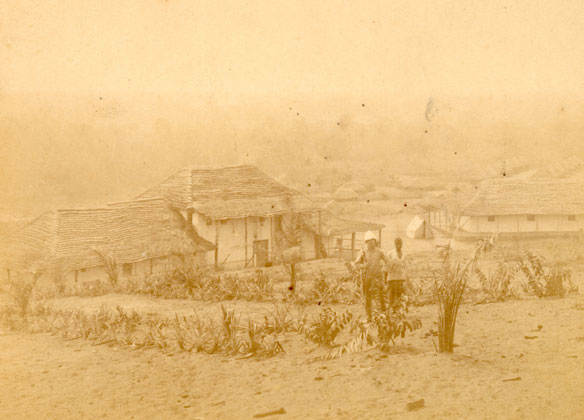Binyamin Netanyahu distorting history for Zionism
Benjamin Netanyahu is a dangerous politician. He is the current leader of the Likud Party of Israel. If his party wins the next election in Israel, the world is screwed!!! This is a guy who wants to build more settlements in the West Bank and he wants Jerusalem to be under complete Israel control. Palestinians will not tolerate his policies and I’m certain all hope for Peace would be gone if he is elected. He is very good at manipulating and exploiting people’s beliefs to justify a fraudulent Zionist vision for Israel. Check out the following video. This is how they brainwash Americans!
Potential Nuclear WW3:
WW3 would probrably begin if Israel makes the wrong move (attacking Gaza/Hamas OR expanding settlements in West Bank OR nationalizing Jerusalem) That will provoke a violent resistance from Palestinians who will be supported by Hezbollah. Hezbollah will be funded by Iran. Due to that connection, the US and Israel will justify a massive retaliation on Iran. If the US attacks Iran, Russia will intervene to help Iran and then, we may see a possible nuclear world war! I hope not.
FYI
Biblical prophecies:
The Bible says:
The generation alive at the time Israel returns to the land will not all pass away before all things, including the return of Christ with his saints, are accomplished. (Luke 21:29-32)
The Antichrist will allow the Jews to rebuild the temple and renew sacrifices. (2 Thes. 2:3-4)
Jerusalem will become a burdensome stone and a cup of trembling to the world just prior to Christ’s return. (Zec. 12:2)
Russia will lead an Arab confederacy in an attack on Israel. (Ezekiel 38:14-16)
Be your own judge…
Negus, King of Ethiopia-Protector of the First Muslim Emigrants
LETTER TO NEGUS, KING OF ETHIOPIA :
In the name of Allah, the Compassionate, the Merciful.
From Muhammad (peace be upon him) Prophet of Allah to Negus King of Ethiopia.
I praise Allah, except Whom there is none to be worshipped, who is the Ruler of the world. He is innocent and pure free from all blemishes, defects, flaws, or shortcomings). He gives refuge and sustains all.
I do admit that Isa (Jesus) (peace be upon him) son of Mariam (Mary), was the soul from Allah and His word (Order), he was infused to Mariam, who was clean and proof against evil. And Isa (peace be upon him) was born of Mariam. Allah created him from His soul and breath in the same manner as He created Adam (peace be upon him) with His own hand. I invite you towards Allah the One who has no associate. Believe in Him and join me in obedience to Him. Follow me and accept my prophethood because I am the Messenger of Allah. I have wished – you well in conveying the message of Allah in all sincerity. It is up you to accept my sympathetic advice. Extend the same invitation to your subjects. I am sending my cousin Jaffer (R.A.A.) with the other Muslims. When they reach you, treat them hospitably, by setting aside the vanity and pride of a ruler.
Peace be on him, who followed the right path.
Note: As mentioned earlier, after the Holy Prophet began to preach Islam, the Quraish became the bitterest enemies of Islam. In the beginning they taunted, teased and maltreated the Muslims. But by and by their opposition took the shape of tyranny. Their treatment of the Muslims, particularly of the poorer ones was so brutal, that they felt extremely unsafe in Mecca and feared annihilation at the hands of the Quraish. At that stage, (6th year before Hijri i.e. 614 A.D.) the Holy Prophet (peace be upon him) allowed the Muslims to temporarily migrate to Ethiopia, as he expected a good treatment by the King of Ethiopia. The Muslims began to migrate to the neighboring country of Ethiopia. This continued till the famous Migration of the Holy Prophet, after which the migrants began to return to Medina The last caravan returned from Ethiopia in 7th Hijra – about 629 A.D. when the second Caravan went to Ethiopia, the Holy Prophet (peace be upon him) addressed a letter to the King of Ethiopia.
The Quraish could not tolerate that the Muslims should live in peace even in Ethiopia. They sent a delegation to Negus and pointed out to him that the Muslims had a strange faith which was altogether new and requested that the Muslims should be sent back. The King concluded from the Muslims about their beliefs. On that occasion Jaffar (R.A.) made a very impressive speech, saying.
“They were an extremely ignorant and pagan nation who worshipped self-made idols. Debauchery, cruelty and eating the dead was their way of life, but Allah sent a Prophet (peace be upon him) who changed their lives altogether. He admonished them to worship Allah only and to regard Him as their Master. He preached to them always to be truthful; and not to misappropriate a trust, treat neighbors kindly, avoid bloodshed and all that Allah has prohibited. Worship Allah, the One observe fasts and pay Zakat. This was the crime, for which their countrymen forced them to leave their hearths and homes and they had to take refuge in Ethiopia.”
The King of Ethiopia was highly moved by the speech and clearly announced that he would not allow such pious people to be tyrannized.
The Muslims, thereafter, always had a deep regard for Ethiopia and never did they think of attacking that country. They conquered big countries like Iran, but never touched the neighboring Ethiopia.
Banned From the Bible – The History Channel (parts 5/6)
The Book of Enoch – The forbidden manuscripts of the Ethiopian Orthodox Christian Church

